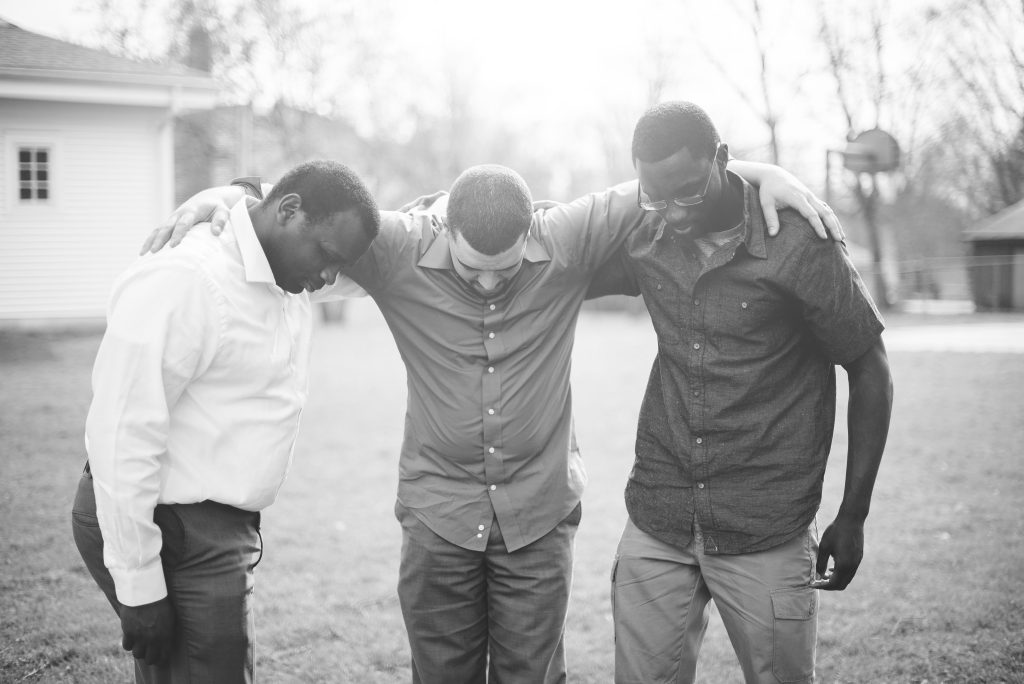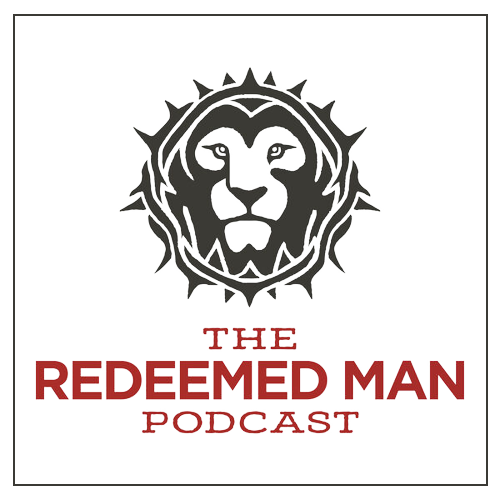The Devil’s Campaign to Disintegrate Your Community

By: Jake Pettit
Be sober-minded; be watchful. Your adversary the devil prowls around like a roaring lion, seeking someone to devour.
~1 Peter 5:8
In modern warfare, opposing armies attack the physical bodies and equipment of their enemies, but, in spiritual warfare, the devil attacks people’s very minds and hearts. He does this not only to destroy us individually, but also to “disintegrate” us from our fellow brothers and sisters in Christ.
A Lesson in Modern Warfare: Penetrate, Exploit, Disintegrate
In 1940, the German “Wehrmacht” famously defeated the French and British armies in just six weeks by rapidly punching through the weakly-defended Ardennes Forest. By the time the Allied forces realized that significant German units were attacking through the Ardennes, multiple German tank divisions had savaged French rear areas, disrupted communications, and trapped nearly a third of the Allied forces in Belgium. By rapidly penetrating and then exploiting a weak sector of the Allied defense, the Wehrmacht defeated the 280-mile-long Maginot Line and disintegrated the Allied armies.
In 2024, modern militaries want to create the same effects that the Wehrmacht did in 1940. Like the Wehrmacht, they seek to identify points of weakness, attack them along a narrow front, and rapidly exploit that penetration so the opponent is unable to recover. The problem is, modern communications systems (radio, satellite, data network) and signals collection capabilities (satellite imagery and heat sensors, electronic warfare radar, drone video footage) make “getting there”—assembling attack forces near the weak point—nearly impossible; the opposing army has too much time to react. On the modern battlefield, it is easy to see the places where the opposing army is weak; the trouble is that the opponent can see attack preparations and movements against weak points just as easily. The trick is getting forces in position and into the attack without the opponent being able to react.
The United States Army’s plan for preventing its opponent from being able to react is called Multi-Domain Operations (MDO). Put very simply, the U.S. Army plans to disintegrate its opponent’s ability to communicate, observe, and fight in every “domain”—in cyberspace, in outer space, in the air, on land, in the sea, and under the sea. When the opposing army’s systems are disintegrated—meaning separated, weakened, and destroyed—the U.S. Army believes it will be able to penetrate and exploit its opponent’s weaknesses successfully.
The devil, the spiritual Enemy of all humanity, fights in much the same way.
An Enemy Campaign: Disintegrate the Community of Believers
The Enemy is constantly waging campaigns against every “domain” of human life because he hates what God loves, and “he knows that his time is short” (Rev. 12:12). One of his greatest campaigns is the one against the community of believers. Just as Multi-Domain Operations destroy armies by disintegrating military systems, Satan destroys individual believers by disintegrating their communities and churches.
Satan hates the community of believers because God loves it. The community of believers—in Greek, the “ekklēsia,” the church—is part of God’s plan to redeem humanity to himself. God designed humans with a need for community (Gen. 2:18). God uses community relationships to support and encourage us in hardship (Prv. 17:17, Ecc. 4:9-12, Rom. 12:12-13, Jam. 1:27). God says that the community of believers is united as one in Christ, one “chosen race, a royal priesthood, a holy nation, a people for his own possession” (1 Pet. 2:9, 1 Cor. 12:12-13, Gal. 3:28-29). God tells us we need community to strengthen one another’s faith and to encourage one another to live as God commands (Rom. 1:11-12, Heb. 10:24). God commands us to care for other believers in ways that require living in community with them (Lev. 19:9-18, Mic. 6:8, Eze. 34, Zech. 7:9-10, Luk. 14:13-14, Jam. 2:14-17, 5:16, Act. 2:42-47, 4:32-35, Gal. 5:13-15, 6:2-3, Phil. 2:3-7, 1 Thes. 5:14). And finally, God commands his people in Scripture, over and over again, to love one another in community (John15:12-13&17, Phil. 2:1-11, Rom. 12:9-13&16, 15:7, 1 Cor. 1:10, 1 Pet. 4:8-11).
The community of believers is a source of life, hope, and redemption for not only Christians but the entire world (Rom. 8:19-24). And the devil seeks to devour it.
The Devil Seeks Someone to Devour—Someone Alone
There are many tactics the devil uses to disintegrate the community of believers, but one of the most powerful is encouraging people to remain alone.
More than twenty-seven percent of Americans live alone. Fifty-seven percent of Americans eat all their meals alone. Fifty-four percent often feel that no one knows them well, while about forty percent say that their relationships are not meaningful, that they are isolated from others, and/or that they are no longer close to anyone. And more than one in ten Americans say they do not have a single friend.
There are many good, healthy, and positive reasons a believer might spend time alone—fellow introverts, can I get an “Amen”? But the Scripture above shows that believers both need and are called to live a significant part of our lives with others. Christians must recognize that the devil campaigns to keep us from community with fellow believers, and that, consequently, we need to guard ourselves and our communities against the disintegration of our fellowship.
Three Habits for Guarding Community
What follows are three habits that will help you guard yourself against the Enemy’s efforts to disintegrate you from community:
1. Cultivate forums for community
Forty-three percent of Americans do not participate in a single community group or organization that would provide them an opportunity to meet or build community with other people. Churches and church groups, ministry organizations like The Redeemed, intramural or adult sports leagues, hobby or board game groups, volunteer organizations, and professional associations all provide excellent forums not only to do life in community with believers, but to care for non-believers as well. Evaluate your participation in community, and consider committing one evening a week to a community group.
2. Commit to participate in community
Busy schedules, difficult work lives, and cultural “self-care” vocabulary make it easy and commonplace to justify canceling, or not committing to in the first place, community events. But believers should recognize the huge emphasis God puts on his people living in community and find ways to commit to participating in life with others, especially other believers. Adults should faithfully manage a calendar to avoid forgetting or making conflicting commitments. And believers should reframe community events as serious commitments that go beyond just providing a “fun” experience for themselves, but that serve and bless others too. In that light, believers should carefully evaluate reasons for canceling planned events and resist the temptation to “flake” at the last minute for less-than-legitimate reasons. We must remember that community is about more than just our own fun, it’s also about God’s plan to redeem us and other people.
3. Choose in-person interaction
Digital technology enables wonderful goods in the world: long-distance relationships, rapid and effective communication, online small groups and ministries, and many others. However, research shows that online interaction can only supplement, never replace, in-person community. While believers should take advantage of all the blessings of digital technology, we must recognize that it cannot replace in-person interaction. To take The Redeemed as an example, while The Redeemed effectively uses digital tools like the website, podcast, and online small groups to reach thousands of men, it also hosts in-person campouts, retreats, and the Restored conference. Believers should consider supplementing online interactions with in-person community: online gaming with hosting or attending board game nights, texting or emailing with walking or coffee dates, and online sermons with attending a local church in-person.
Guard Yourself in Community
Community is a central part of God’s plan to redeem us, and the people around us. He has commanded us to seek it, to participate in it, to care for others in it, and to guard it from the campaigns of the devil. “You, dear children, are from God and have overcome [the spirits of the world], because the one who is in you is greater than the one who is in the world.” (1 John 1:4)
Jake Pettit currently lives with his wife Emily in Fort Moore, Georgia, where he serves in the U.S. Army as an infantry officer. He has co-led online small groups with The Redeemed, and is active in his local church.
Additional Resources
More Posts From The Redeemed
The Redeemed offers articles and resources on spiritual growth, relationships, family, overcoming trauma and loss, and more. Providing guidance for incorporating Biblical teachings into our everyday lives.

Breaking Free From Performance and Shame Through Your Identity in Christ
Maybe you’ve heard the name Frank Abagnale—the real-life con artist who became famous in the film Catch Me If You Can. Before the age of 21, he successfully convinced the world that he was, among other things, an airline pilot, doctor, and lawyer. Each identity came with confidence, credentials, and applause. And for a while, the masks worked—Abagnale fooled many people. However, it eventually caught up with him. Every false identity he wore led him deeper into consequence, fear, and exposure.

Prayer and Fasting in Community Strengthens Christian Men
Who are you becoming in Christ?
Prayer and fasting are deeply personal practices, but they are not meant to be practiced only in isolation. When they are shared in community, they become places of encouragement, accountability, and deeper formation. As you discuss the following questions, resist the urge to perform or fix. Instead, listen well, speak honestly, and encourage one another. Growth begins with truth, and God often uses community for the forming work he wants to accomplish in us.

The Discipline of Self-Denial: Why Christian Men Need Prayer and Fasting
We live in a culture obsessed with self-indulgence. From the moment we wake up, we’re told we deserve more: more comfort, more success, more experiences, more stuff. Bigger is better. Newer is necessary. If something feels hard, inconvenient, or uncomfortable, we’re encouraged to avoid it or upgrade out of it. The message is constant and convincing: you owe it to yourself.



